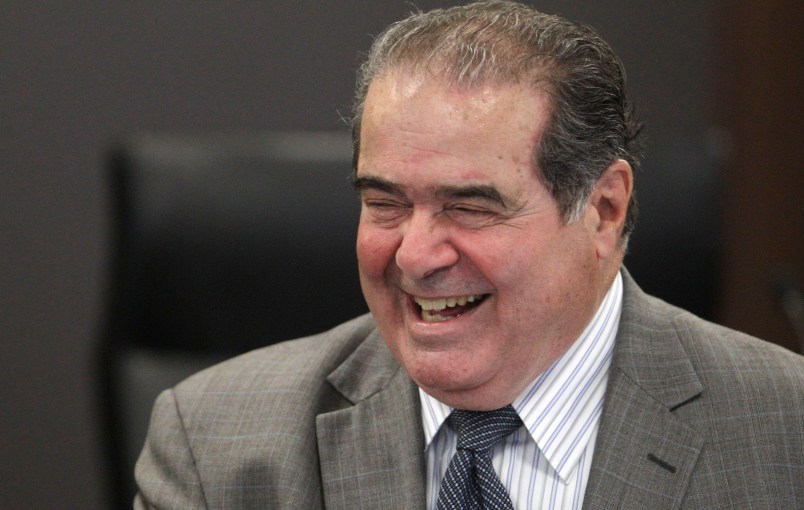Let us first recognize the unexpected death of Justice Antonin Scalia, a 79 year old man with a large family and almost countless admirers, friends and proteges. I think he had precious few supporters or ideological admirers among our core readers. But this is a man who served on the High Court for almost thirty years and unquestionably, for better or worse, will go down as one of the most influential Justices of the last half century. Indeed that time scope may be too short to capture the breadth of his influence. Very early in his time on the Court, I think in 1988, he gave a talk to a class I was in college. From that experience and what I have heard from many sources over the years, Scalia was as charming and appealing on a personal level as his jurisprudence was retrograde and deplorable to progressives and liberals on an ideological level. Our ideological and partisan commitments should never be so all-encompassing that we cannot step aside from them to recognize realities that transcend them: in this case, that this was a genuinely brilliant man and a patriot.
It has been a long time (at least in my quick scan of my memory) since a sitting Justice died so unexpectedly – and in a period when the Court is more deeply involved in the country’s politics, as opposed to shaping policy questions, as it has perhaps ever been. Scalia’s death is quite simply a bomb shell dropped on America’s political horizon, the on-going confrontation between President Obama and the Republican Congress and the 2016 presidential election.
I had to think about this for more than a few moments before I realized just how many immediate implications this has, how many things change.
On its face, this means that President Obama gets to make a Court defining appointment to the Supreme Court. However, it is worth noting that within moments of this news being announced there were Republican activists insisting that Senate Republicans refuse to hold any confirmation hearings in 2016, effectively denying President Obama the nomination and kicking it to his successor.
That would be wildly out bounds of all precedent and past practice. But I suspect there will be a big push to do just that. Recurrent government shut downs and threats to default on the nation’s credit are no less unprecedented. Such a move might plausibly be justified for a lame duck President or in the month or two before a presidential election. But President Obama is only a few weeks short of a year remaining in office.
Regardless of what happens on that front, there are numerous cases that were set to be argued and/or decided this year. Now there are only eight members of the Court. And most of the big cases, the most controversial ones, required Scalia’s vote. So what we thought we knew an hour ago about major Supreme Court action on immigration, the environment, union rights, abortion and a number of other issues is now totally unclear. At a minimum it seems likely that decisions that break big new ground are kicked into 2017.
I have often wondered what drove Scalia’s increasingly provocative public demeanor – both in oral arguments and in public speeches – over the last decade or more. But that is a question for another day and one I won’t ever be in a position to shed light upon.
This is one of those events, the impact of which is hard to overstate.







